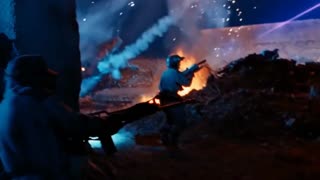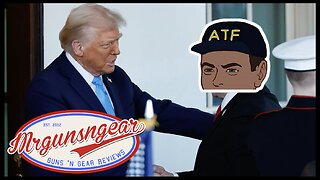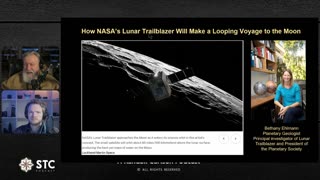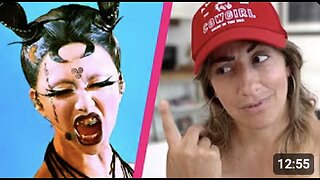Premium Only Content

Precious Policy Of Truth Depeche Mode
Precious Album: Playing The Angel (2005)
Policy Of Truth Album: Violator (1990)
by Depeche Mode
Martin Gore wrote Precious about his divorce from Suzanne Boisvert, and the impact it had on their children. Gore said that his marriage had become "a charade," and felt awful about letting it get to that point:
I thought we'd manage
But words left unspoken
Left us so brittle
There was so little left to give
Although this is a very personal song for Martin Gore, it was sung by their main vocalist, Dave Gahan, which was standard procedure for the band. The Playing The Angel album was a turning point though, because Gahan wanted to write half the songs on the set; he settled for three after their producer, Ben Hillier, talked him down.
Playing the Angel is the eleventh studio album first released on 17 October 2005 by Mute Records in the UK, and a day later by Sire Records and Reprise Records in the United States. It was supported by the Touring the Angel tour and the four singles "Precious", "A Pain That I'm Used To", "Suffer Well", and "John the Revelator" / "Lilian". The album reached number one in over 10 countries and entered the top 10 in the United Kingdom and United States.
Playing the Angel is the first Depeche Mode album to feature writing contributions from lead singer Dave Gahan. He wrote the lyrics to "Suffer Well", "I Want It All" and "Nothing's Impossible", while Christian Eigner and Andrew Phillpott wrote the music. Gahan is the lead singer on all songs except for the instrumental "Introspectre", and Martin Gore-sung tracks "Macro" and "Damaged People". Gahan also sings backing vocals on "Macro". Tracks recorded during the Playing the Angel sessions that did not make the album include "Martyr", which was originally planned to be the lead single but was eventually deemed too poppy for the album and saved for The Best of Depeche Mode Volume 1. Other songs include "Free", which ended up on the "Precious" single and the Japanese version of Playing the Angel.
In mid-July 2005, the unfinished video for "Precious" was leaked online. It is believed to have been leaked through the website of the production team that helped make the video.
Playing the Angel was released as a Copy Controlled CD and a deluxe SACD/DVD version (CD/DVD version in the United States) which includes the album on hybrid multi-channel SACD as the main disc and a bonus DVD featuring an exclusive studio performance of "Clean" (from Violator), the video for "Precious", a photo gallery and a 5.1 mix of the album. There is also a documentary on the making of the album. All ten of the earlier Depeche Mode albums were re-released in similar format to Playing the Angel, a CD/SACD hybrid (in the US simply a remastered CD) with a DVD featuring a 5.1 mix of each album and a documentary, though Playing the Angel's documentary is far less extensive and also shorter than the classic ones. The album was also released on vinyl as double LP housed in gatefold sleeve.
The iTunes deluxe edition of Playing the Angel has several bonuses, including another "bare" version of a Violator track, "Waiting for the Night", and the music video for "Precious". People who placed the album on pre-order were eligible to participate in a ticket pre-sale for most Touring the Angel concerts, the first time such an offer was made by iTunes and Ticketmaster.
"Policy of Truth" is a song by the English electronic music band Depeche Mode, released on 7 May 1990 as the third single from their seventh studio album Violator (1990). It is the only Depeche Mode single to chart higher on the US Billboard Hot 100 chart (number 15) than on the UK Singles Chart (number 16), and it became the band's second chart-topper on the Billboard Modern Rock Tracks chart.
François Kevorkian mixed a new single version for the release of Policy of Truth, extending it slightly while lowering the tempo, and also making Dave Gahan's vocals more prominent. He also mixed the Beat Box Mix (the 12-inch version of the single mix) and the Pavlov's dub. The "Trancentral" mix is by the KLF, a popular acid house band at that time that only did remix work for other artists on 3 occasions (the others being "So Hard" and its B-side "It Must Be Obvious" by the Pet Shop Boys and "What Is Dub?" by Moody Boys). The "Capitol" mix uses the sample "I want to tell you my side of the case" from the Checkers speech by Richard Nixon. A version of "Kaleid" was used as intro music for Depeche Mode's World Violation Tour in 1990.
Violator is the seventh studio album first released on 19 March 1990 by Mute Records internationally, and by Sire and Reprise Records in the United States.
Preceded by the singles "Personal Jesus" and "Enjoy the Silence" (a top-10 entry in both the United Kingdom and the United States), the album propelled the band into international stardom, and also yielded the singles "Policy of Truth" and "World in My Eyes". Violator reached number two on the UK Albums Chart, and was the band's first album to chart inside the top 10 of the Billboard 200, peaking at number seven. The album was supported by the World Violation Tour.
Violator was recorded in 1989 in Milan, Italy, and Denmark. On the album, Depeche Mode worked with Flood as producer for the first time, and François Kevorkian was responsible for the sound mix. Compared to previous albums, the band decided to try a new approach to recording. Alan Wilder said, "Usually we begin the making of a record by having extensive pre-production meetings where we decide what the record will actually sound like, then go into a programming studio. This time we decided to keep all pre-production work to a minimum. We were beginning to have a problem with boredom in that we felt we'd reached a certain level of achievement in doing things a certain way." Martin Gore elaborated, "Over the last five years I think we'd perfected a formula; my demos, a month in a programming studio, etc. etc. We decided that our first record of the '90s ought to be different."
With co-producer Flood, Wilder began a complementary working relationship, with Flood able to provide the technical know-how and Wilder working on the arrangements and song textures. "That's how we made the group work at that time", clarified Wilder, "by accepting that we all had different roles and not actually all trying to do the same thing. So we ended up with this unwritten agreement in the band, where we'd all throw together a few ideas at the beginning of a track. Then Fletch and Mart would go away, and they'd come back after we'd worked on it for a while to give an opinion."
There was also a notable change in Gore's demos. After the rigid, limiting effects of almost-finished demos for Music for the Masses, Gore, agreeing to Wilder's request, kept them less complete this time around. Several of the basic recordings consisted of vocals over a simple guitar or organ part, with the odd percussion loop, but less sequenced material. The sparse demos allowed the band to take creative liberties with the songs. For instance, "Enjoy the Silence" started out as a slow ballad, but at Wilder's suggestion became a pulsating, up-tempo track.
The band convened to work on the record with Flood at Mute's WorldWide programming room in London for three weeks after which they flew to Milan for the new sessions at Logic studios. According to Flood, they did not do a substantial amount of work in Milan, except for the song "Personal Jesus", which was crucial in setting the tone and spirit of the album. "Everybody was feeling each other out, because they wanted to try working in a different way. The idea was to work hard and party hard and we all enjoyed ourselves to the full." After Milan the band relocated to Puk studios in northern Denmark, where most of the album was recorded.
-
 17:39
17:39
Psychological operations
8 days agoGot Me Under Pressure Waitin' For The Bus Jesus Just Left Chicago My Head's In Mississippi
511 -
 5:17
5:17
Mrgunsngear
1 day ago $6.72 earnedPresident Trump Has Appointed A New ATF Director
42.8K31 -
 48:17
48:17
Athlete & Artist Show
8 days ago $1.73 earnedS5E1: Chucky Announces First Kid, 4 Nations Face Off, and more!
37.4K2 -
 38:30
38:30
hickok45
9 hours agoSunday Shoot-a-Round # 269
62.6K17 -
 1:39:55
1:39:55
Squaring The Circle, A Randall Carlson Podcast
1 day ago#040 Humanity's Expansion Into The Cosmos: A New Age - Squaring The Circle
35.9K5 -
 12:54
12:54
ariellescarcella
19 hours agoYou're NOT Queer, Just Annoying And Boring
29.3K19 -
 18:57
18:57
Fit'n Fire
15 hours ago $1.43 earnedA PDW That Thumps -- Stribog SP45A3 45ACP
25.3K2 -
 2:06:23
2:06:23
Game On!
19 hours ago $2.18 earnedAnother Sunday Without Football...
32.8K3 -
 17:53
17:53
Forrest Galante
20 hours agoHow I Joined a Dangerous Remote Tribe (feat. Nelk Boys)
87K15 -

Vocalot
1 day agoDay 6! New Here! New Rumble Friends!? 🤙
103K9